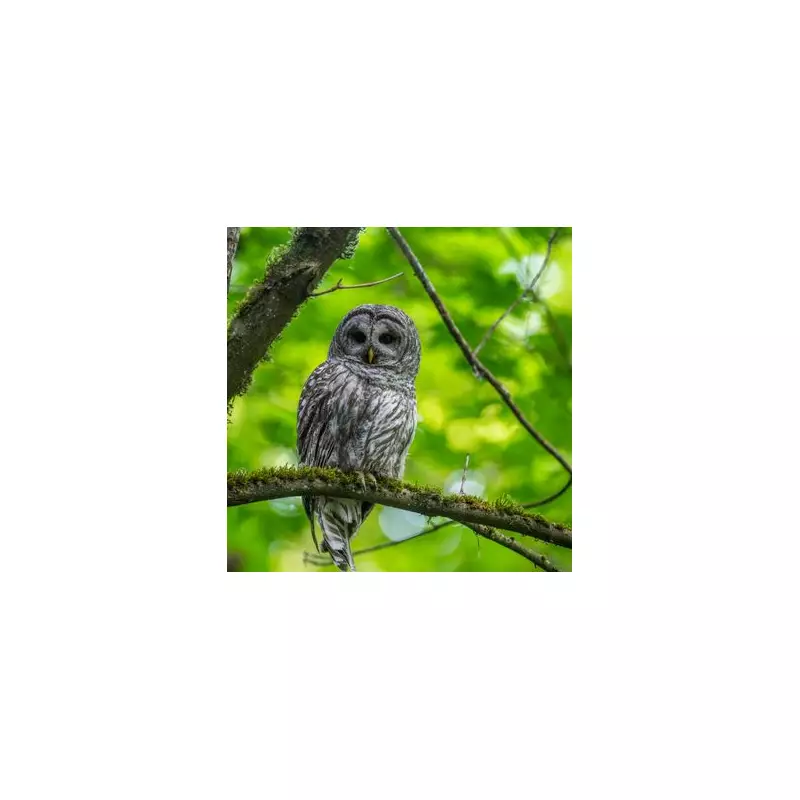
An avian specialist has unveiled a surprisingly simple method for locating one of Britain's most elusive woodland creatures: the owl. The key, he explains, lies not in scanning every tree but in heeding the alarm calls of other birds.
The Crow Tattletale Technique
TikTok user Birding with Risk shared his expert advice, stating that seeing an owl is a magical experience. He acknowledged the difficulty, noting that owls are mostly silent and can remain perfectly still throughout the day. His favourite strategy bypasses this challenge entirely by using nature's own informants.
He elaborated: 'My favourite trick to finding owls is using the other birds as tattletales. When crows or jays find an owl during the day, they'll usually cause quite a commotion and squawk until the owl flies away.' The expert's clear instruction is to pay close attention to the crows, as they will lead you directly to the hidden owl.
Identifying the Barred Owl
The guidance also helps with identification, specifically mentioning the Barred Owl. The expert described these birds as 'quite scary' if you stumble upon one, noting they are huge with 'dark soul-searching eyes.' He pointed out that in North America, the only other owl species with similarly dark eyes is the Barn Owl or the super-rare Spotted Owl.
This clever tip has generated significant excitement among nature enthusiasts on social media. One follower commented, 'Guess I know what I'm doing for the rest of my holidays,' while another confirmed the identification method: 'You can also tell it's a Barred Owl because of the way it is.' Others shared personal experiences, with one user noting, 'We have those owls at our cottage. I love the sound of them at night.'
Supporting Wildlife Through Winter
Beyond spotting owls, the RSPB is urging the public to provide consistent support for wildlife throughout the colder months. The organisation advises putting out food and water on a regular basis during autumn and winter.
A statement from the RSPB reads: 'In severe weather, you may find you need to feed twice daily. Birds need high-energy, high-fat foods during cold weather.' They stress the importance of adjusting the quantity to demand and never allowing uneaten food to accumulate. Maintaining a consistent feeding routine is also crucial, as birds become accustomed to it.
Hygiene is paramount. The RSPB recommends brushing off debris every time fresh food is provided and scrubbing feeders with a mild disinfectant weekly. Moving feeders periodically prevents a build-up of droppings underneath. Water containers should be rinsed daily, allowed to dry, and then refilled with fresh water.
If a sick bird is spotted, feeding should stop immediately. Feeders must be thoroughly cleaned and stored away from the garden for two-to-four weeks before resuming. The process should be repeated if any more sick birds appear. As some bird diseases can infect people, the RSPB advises wearing gloves, washing hands thoroughly after cleaning, and using separate utensils for the task, cleaning everything outdoors.





